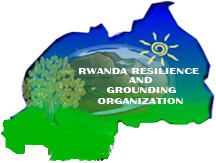https://pubmed.ncbi.nlm.nih.gov/32993777/
Background: Psychological well-being (PWB) refers to inter- and intra-individual levels of positive functioning that include one’s relatedness with others and self-referent attitudes that include one’s sense of mastery and personal growth. PWB consists of hedonism and eudaimonia building on thoughts, feelings, and behaviours. Sociotherapy is a community-based health intervention that contributes to the promotion of PWB worldwide. Starting from an analysis of trauma transmitted from the perpetrators and survivors of the Rwandan genocide to their descendants, this article is aimed at exploring the contribution of therapeutic sessions to PWB among youth.
Method: A qualitative study design based on shared testimonies was carried out. Field reports from the sociotherapists, written texts, and testimonies of changes presented in the conviviality meetings were analyzed using transactional analysis. We included 24 reflexive texts upon completion of 8 months of the therapeutic program.
Results: Results indicated that before sociotherapy sessions, youth born to genocide survivors and perpetrators had psychosocial distress, including low self-esteem, hopelessness, anxiety, stigma, thoughts of revenge, shame, depression, and antisocial behaviours. Sociotherapy significantly contributed to the reduction of these psychosocial problems. Participating youth reported feeling safe, trusted, respected, and healthier than before the sociotherapy. This intervention created inner healing, social cohesion, alleviated their sufferings of trauma, restored their families and contributed to community resilience. Results revealed that youth developed PWB, helping them to what appeared to be psychosocial problems as being potentially healthy, enhancing self-acceptance, and respecting humanity. Youth also became the vector for the reconciliation and reconstruction of their humanity.
Conclusion: Sociotherapy is a community health intervention that has an effective outcome on the personal well-being of youth. This therapy impacted the individual, social, and familial resilience of youth who developed their capacity to regain and maintain health. The intervention restored their PWB, characterized by increased positive functioning specifically in the areas of autonomy, ecological mastery, individual growth, purpose in life, good relationships with others, and improved self-esteem.
Keywords: Eudaimonic well-being; Fieldwork; Hedonic well-being; Narrative data; Perpetrator; Sociotherapy; Survivor; Transactional analysis; Youth.

It was great hearing your story. I too am from Missouri. I live in MD now as my husband is military and we move a lot. He grew up in the same general area as you are now. A little bitty town north of KC called King City. I got into Dreaming Tree while we were overseas and I think you do such a great job with their projects. Giana Darnell Eyde
Awesome! Its truly amazing piece of writing, I have got much clear idea concerning from this article. Marigold